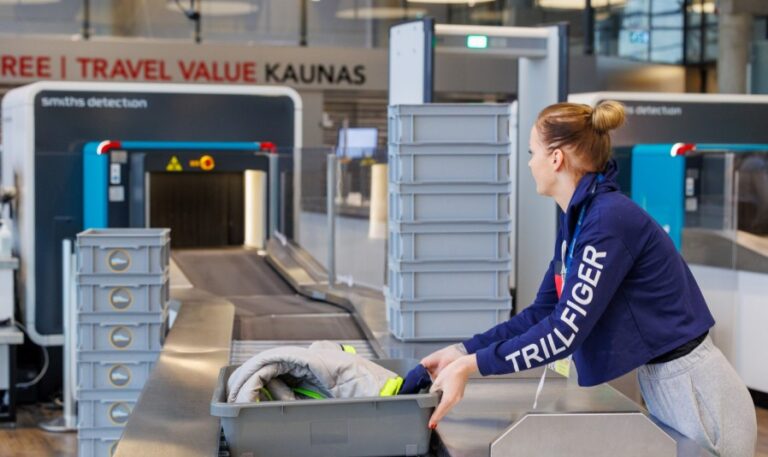Lithuania’s Kaunas Airport has announced that aviation security screening has become faster now that three computer tomography-based scanners have been deployed at full capacity. The scanners from Smiths Detection were installed on a trial basis in November. The systems were put into full use in February when the testing phase concluded.
Passengers passing through Kaunas Airport no longer need to remove any electronic devices and liquids from hand luggage during the check-in procedure. The scanners enable screening inspectors to rotate the 3D image on their screen at various angles to identify items placed in hand luggage. Vilnius Airport will deploy seven of the scanners in its new departure terminal.
Polish company Dimark won the contract to install the scanners at Kaunas and Vilnius. The value of the entire project is €5.8m.
Vidas Ksanas, head of the safety and security department of Lithuanian Airports, said that although liquids do not need to be removed, passengers must still adhere to the requirement that liquids carried in hand luggage must be in containers with a capacity of no more than 100ml, with the total volume of liquids per passenger not to exceed 1 liter (1,000ml).
Ksanas explained that airports around the world apply different practices regarding the transportation of liquids in hand luggage, and that it is therefore more convenient for the passenger not to relax these rules at Lithuanian airports for the time being. Ksanas hopes that the broad international discussion of airports will turn into common decisions and uniform rules for the entire aviation sector, which will allow the current order to be changed and the advantages of modern security technologies to be fully exploited.
The current rules for screening passengers and their hand luggage in the European Union came into force in 2006, when the EU decided to take stricter measures to protect passengers from the threat of liquid explosives.
For more news on CT scanners, click here

